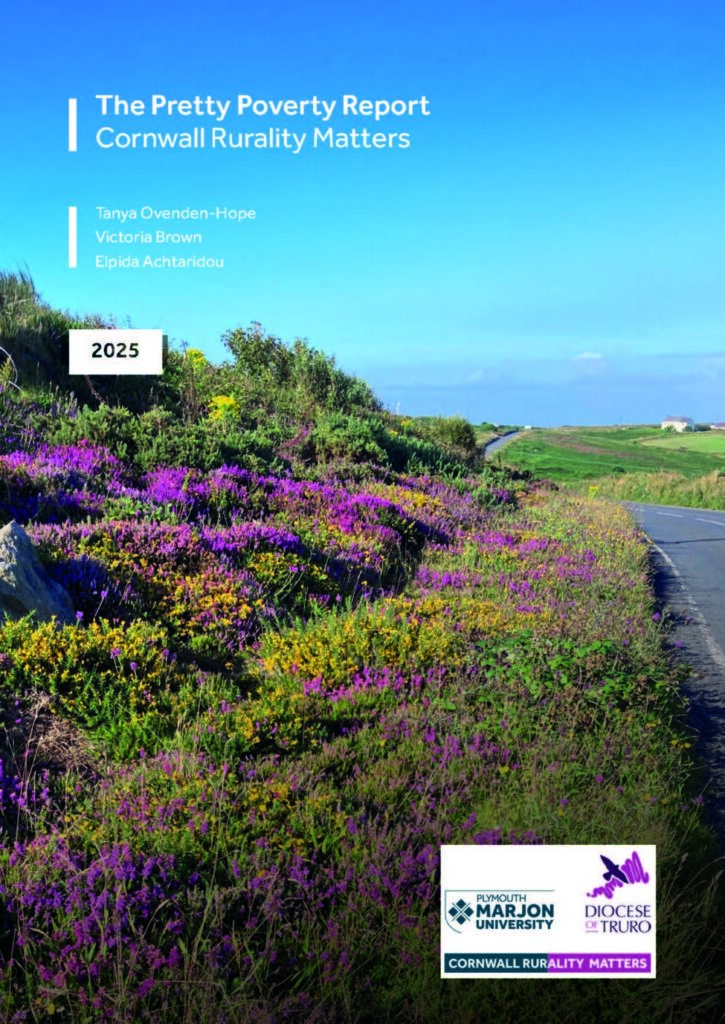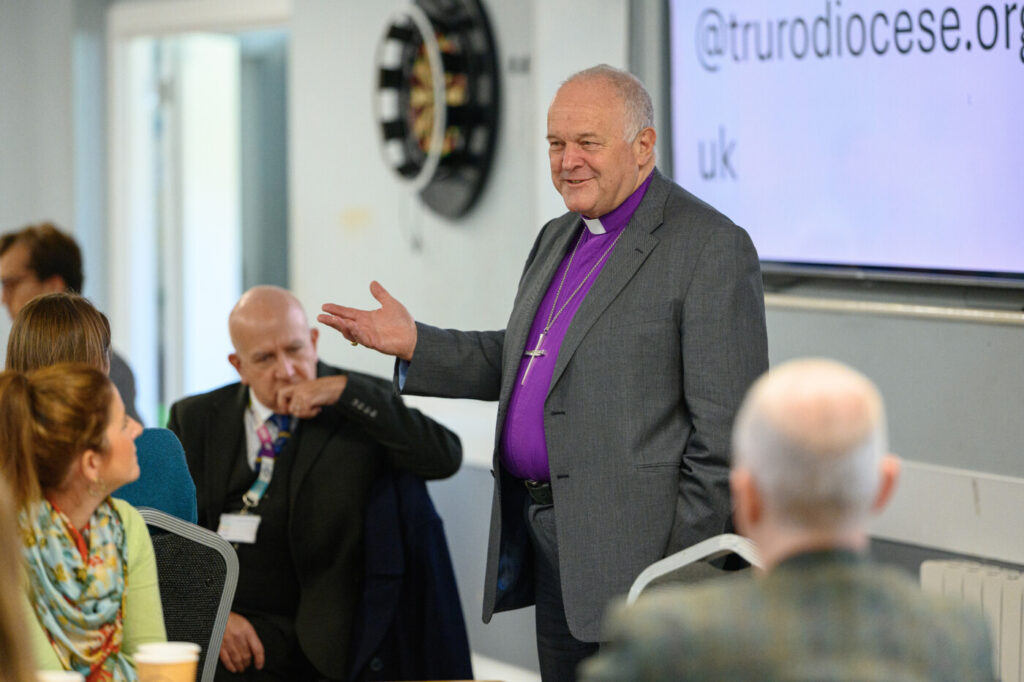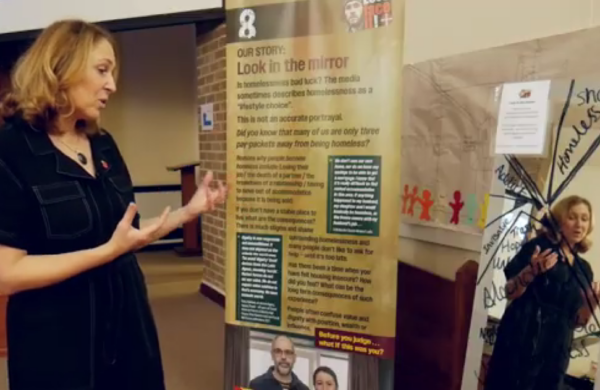How should churches address rural poverty?
 How is rural poverty changing, and how should churches, dioceses and Government respond? Paul Phillips explores the issue, and reports on his diocese’s work.
How is rural poverty changing, and how should churches, dioceses and Government respond? Paul Phillips explores the issue, and reports on his diocese’s work.
In September 2025, an academic report was published and launched in St. Dennis, a small village of around 3,000 people in rural Cornwall. The venue was the local football club hospitality building, overlooked by rolling green hills dotted with sheep and the recycling and recovery centre incinerator towers. Perhaps not the most impressive setting, but certainly a relevant one.
The report, called Pretty Poverty: Cornwall Rurality Matters, was commissioned by the Diocese of Truro and supported and carried out by Plymouth Marjon University. It shines a light on how the IMD (Index of Multiple Deprivation), the government’s standard measure of poverty, is inadequately representing poverty in rural contexts, particularly Cornwall.

Rural poverty: pockets of hardship are hidden
Due to the size of the areas the country is broken down into, the IMD masks pockets of hardship which get averaged out by nearby areas of affluence.
Misunderstanding the importance of a car in rural areas is also a glaring error in the Government data – it is not a sign of wealth or a luxury but an essential tool to enable people to travel around rural areas without having to depend on shaky (or non-existent) public transport or the kindness and availability of friends and family. Owning a car (with road tax, insurance, and general upkeep costs) imposes a ‘rural tax’ on people who live outside of cities and larger towns.
For those of us who live and work in these areas, there isn’t a lot of ‘new news’, but the importance of having a scientifically researched academic paper which gives credence to all our anecdotal, lived experiences is so important.
Rural poverty: a funding shift is needed
Perran Moon, MP for Camborne and Redruth, wrote in his foreword for the report, “I have said it before, and it bears repeating: there is no single, sweeping reform – no matter how radical – that can reset the pressures that Cornwall faces. But a crucial first step, as this report outlines, is to ensure that funding distribution reflects the unique characteristics of remote coastal areas like ours.’.


Rural poverty: church at the forefront
The Rt Revd David Williams, Bishop of Truro (pictured above), said: “The church here has always looked beyond the pretty views, and beyond our well-placed pride in Cornwall, and understood what lies deeper. That’s why the church is at the forefront of work through foodbanks, debt advice, crisis support, education, and a thousand other ways to be Good News for those most in need.”.
What does it mean for Cornwall - and other rural communities?
But what does this mean for Cornwall?
As a Diocese, we are already having conversations about how the outcomes of this will affect the work we do and how we do it. How might you and your organisation or church take the outcomes of Pretty Poverty and look at your context differently? What changes might need to be made in your local area to make a deep impact to those in need?
This research, focussed on six areas in Cornwall, is not just for Cornwall, however. Our hope and prayer is that the government takes notice of this report and changes the way they measure deprivation in rural areas across the country.
Do spend some time reading the report and use what connections you have to share it with your local MP and local leaders.




Comments (02)
Comments are closed.